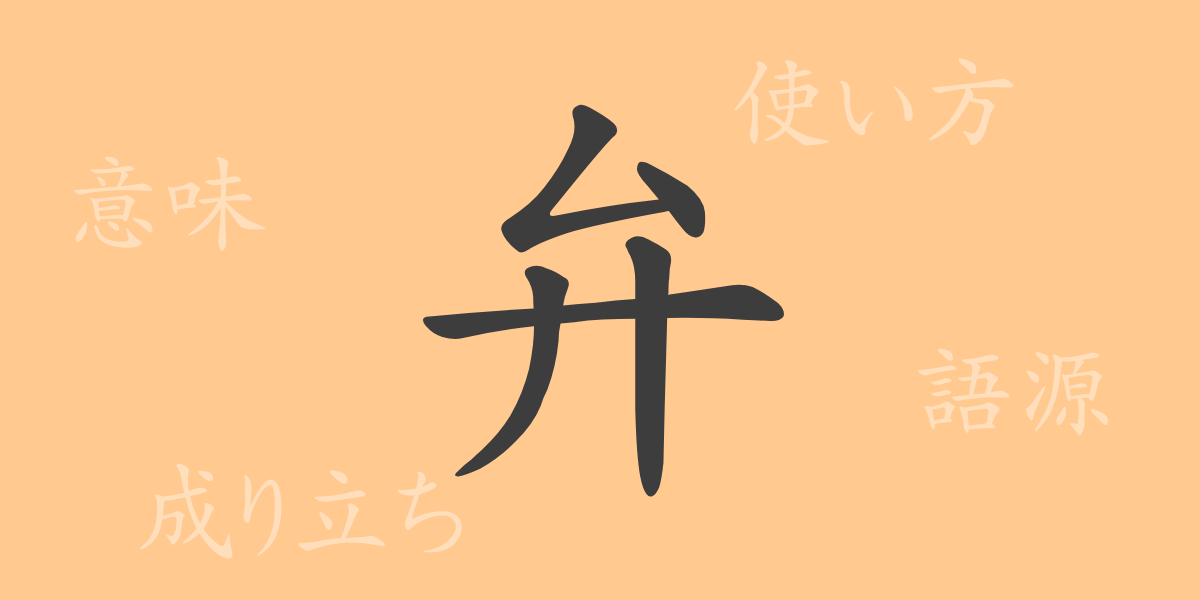The 常用漢字(Jouyou Kanji) “弁(ben)” symbolizes the richness of the Japanese language. Rooted deeply in Japanese culture and language since ancient times, this kanji has diverse meanings and uses, closely intertwined with the daily lives of Japanese people. In this article, we will explore the charm and usage of “弁(ben)” from its etymology to idioms, proverbs, and compound words. Let’s delve into the profound depth of the language while keeping SEO in mind.
Origin of 弁(ben)
The kanji “弁(ben)” originated as an expression of words in ancient China. Initially, it was a variant of “変(hen)”, meaning change or transformation. Over time, “弁(ben)” began to encompass various meanings related to words, such as debate, explanation, and distinction. Additionally, it came to be used to mean the petals of a plant, encompassing various meanings derived from its shape.
Meaning and Usage of 弁(ben)
The kanji “弁(ben)” primarily means “to discern,” “to distinguish,” “to explain,” and “to defend.” All these meanings are related to acts of judgment, explanation, or differentiation. Additionally, “弁(ben)” is used in names of dishes and place names, deriving from the meaning “to distinguish anew.”
Readings, Stroke Count, and Radical of 弁(ben)
The kanji “弁(ben)” also demonstrates the diversity of the Japanese language in its readings and structure.
- Readings: In On’yomi (音読み), it is read as “ベン(ben)”; in Kun’yomi (訓読み), it is read as “わきまえる(wakimaeru)” or “わける(wakeru).”
- Stroke Count: “弁(ben)” has a total of 5 strokes.
- Radical: The radical of “弁(ben)” is “弓(yumihen).”
Compound Words, Idioms, and Proverbs with 弁(ben) and Their Meanings
There are numerous compound words, idioms, and proverbs that include “弁(ben),” showcasing the richness of Japanese expressions. For example, “弁当(bentou)” refers to a meal packed in a container, distinguishing various dishes, and is a representative word of Japanese food culture. “弁解(benkai)” means explaining one’s actions or words to seek understanding. “弁護士(bengoshi)” refers to a profession where one advocates or defends others based on the law. In proverbs, “弁に立つ(ben ni tatsu)” means to be logically sound.
Conclusion on 弁(ben)
The depth of meaning contained in a single kanji highlights the subtlety and diversity of the Japanese language. The kanji “弁(ben)” has been closely tied to our lives and culture from ancient times to the present, used in many words and expressions. We hope this article has allowed you to feel a bit of its profound world.

























